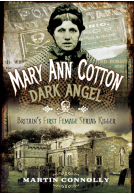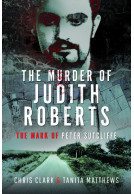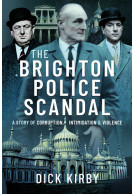The Criminal Classes (Hardback)
Who Does Society Fear and Why?
Imprint: Pen & Sword True Crime
Pages: 224
ISBN: 9781399067102
Published: 14th February 2024
(click here for international delivery rates)
Need a currency converter? Check XE.com for live rates
| Other formats available - Buy the Hardback and get the eBook for £1.99! | Price |
|---|---|
| The Criminal Classes ePub (6.8 MB) Add to Basket | £6.99 |
We explore why the idea of the criminal class came into being. Starting with garrotters lurking in dark Victorian alleyways, the fiend Jack the Ripper stalking London’s streets to the menace of violent gangs, the ‘Scuttlers’, Peaky Blinders, and Liverpool’s High Rip, all the way through to 1970s joyriders, 1990s ravers, and the modern drug trade that brings guns and knives to our streets. It describes the actions taken to control the hard-core group – increasingly harsh punishments, executions, floggings, long prison sentences and the ways that society learns about crime, dangerous areas, and the people who habitually offend against society. How do we know what dangers apparently lurk in the inner cities? What part did the newspapers, authors and social investigators play in sensationalising some crimes, and were they right to do so? The book compares real-life criminals (and their lives) with fictional accounts, such as the Artful Dodger, Pinkie in Brighton Rock, and the scenes that social investigators such as Henry Mayhew dragged back from the criminal rookeries to entertain and frighten respectable people. Perhaps most importantly, the book shows which groups have been targeted as the criminal classes, particularly the young, as well as ethnic and racial minorities, and concludes by asking, “Who are the new criminal classes likely to be?“
Rating: 5 out of 5 stars
NetGalley, Victoria Thompson
This is well researched and well written. I like the formatting and how there are illustrations throughout which I think makes this really engaging. If you are interested in criminology and true crime then I think you will enjoy this. I would recommend this!
In the thought-provoking work “The Criminal Classes: Who Does Society Fear and Why?”, authors Alexandra and Barry Godfrey embark on a historical journey to dissect the societal construct of the ‘criminal class’. This book is not merely a chronicle of crimes and punishments but an insightful exploration into the societal psyche that labels and fears certain groups as perpetual offenders.
NetGalley, J. Kromrie
The narrative begins in the shadowy Victorian alleyways, introducing us to the garrotters and the infamous Jack the Ripper, and traverses through time to the modern-day drug trade. The Godfreys meticulously detail the evolution of society’s response to crime, from public executions and floggings to long-term imprisonment, reflecting on the effectiveness of these measures in controlling crime.
What sets this book apart is its interdisciplinary approach. The authors skillfully weave in perspectives from criminology, social psychology, history, and literature to support their analysis. The use of original etchings, prints, and excerpts from various media forms, including newspapers and court records, enriches the narrative, offering a multi-faceted view of crime and its portrayal.
The book also challenges the reader to consider the role of the media in shaping public perception and fear. It delves into how a handful of crimes can be sensationalized to depict the poor or marginalized communities as inherently criminal, sparking moral panics that resonate through the ages.
One of the most compelling aspects of “The Criminal Classes” is its comparison of real-life criminals with fictional counterparts like the Artful Dodger and Pinkie from “Brighton Rock”. This juxtaposition not only entertains but also prompts reflection on how fiction often mirrors and sometimes distorts reality.
As the Godfreys conclude by pondering who the new criminal classes might be, they leave us with a lingering question: Are we, as a society, repeating the mistakes of the past by branding certain groups as the ‘other’ based on fear rather than fact?
“The Criminal Classes” is a well-researched, engaging read that is particularly recommended for students and enthusiasts of criminology, social sciences, and history. It is a book that informs and challenges us to look beyond the headlines and stereotypes to understand the complex interplay between society and those it deems criminal.
Rating: 5 out of 5 stars
NetGalley, Jamie Carter Park
As a sociologist, or someone with the degree anyway, I naturally need to scoop books like this up. I learned a lot!
I will recommend this to my other soc nerd friends.
Rating: 5 out of 5 stars
NetGalley, Ink Reads
The Criminal Classes is very well thought out and would be ideal for students of not just criminology, but Social Psychology, History, Literature and media studies. The reason I point to these areas, is because the book skillfully employs examples from each of these diciplines to support the points made.
The most fascinating I found, was the effect of the media of the time on behaviours of more affluent classes. A small amount of robberies would be exaggerated exponentially by the media, misrepresenting the poor as criminals, creating a hysteria of sorts (oh how this has carried on to this day!)
The use of original etchings and prints is a fascinating insight to the perception and recording of crime throughout history an a really nice touch is the comparisons drawn between the environments of today (high concentration council estates) and the rookeries of the Victorian era. The excerpts from newspapers, court records, literature and even Punch cartoons are a great illustration to a thought provoking, very well researched and presented discussion
The trends are certainly there, but how far can we trust these records in making forecasts as to what the future will bring? A fascinating book and certainly highly recommended.


















